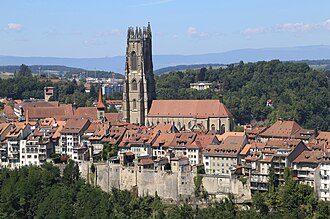
Catholics in Europe are experiencing their own version of the same culture wars and internal divisions as their counterparts in the U.S., writes Massimo Faggioli in Commonweal magazine (September 21). “The continent is at a crossroads, and the soul-searching extends to European Catholicism. The church is divided over issues like Europe’s rearmament, the war in Ukraine, and the future of Israel and Palestine. The church of the old continent is currently undergoing a process of globalization, with a growing number of students, teachers, priests, and religious from other parts of the world—including prelates coming from America to re-evangelize Europe,” Faggioli adds. With an American pope, and Europe rethinking its political and economic relations with the U.S., European church leaders are also feeling new pressures. “In particular, the German-speaking part of European Catholicism, associated with theological and ecclesial progressivism, is visibly nervous about the danger of Trumpism coming to the continent.” Faggioli points to culture war dynamics in Austria, where conservative former chancellor Sebastian Kurz and theologian Gudrun Kugler are encouraging the political engagement of the conservative Catholic networks to support the ÖVP party in its shift to the populist right.

ÖVP has softened its anti-Catholic sentiment and has embraced “cultural Catholicism as a component of its national conservative platform.” Kugler herself embodies a “new, entrepreneurial Catholic presence,” having started a faith-based dating site active in several European countries. A similar highlighting of Catholic identity was visible in the platform of the Swiss People’s Party in the 2023 elections. In Germany, progressive bishops are grappling with the popularity of the right-wing Alternative for Germany (AfD) party and signs that the church is more divided between right and left. Faggioli writes that “while the episcopates take a publicly anti-populist stance, this doesn’t preclude ideological shifts within the clergy and the laity. This is evident in Italy, where Giorgia Meloni leads a Church-friendly right-wing ideological coalition that has definitively replaced the twentieth-century Christian-Democratic platform.” But the tensions over American influence are as much spiritual as political. There has been a boom in adult baptisms in various countries and an interest in traditional Catholic practices. “It seems there may be a new kind of European Catholicism, having more in common with American Christianity (culture wars, multiculturality, adult conversions) than with the old model of dialectics between Christendom and secularization,” Faggioli concludes.